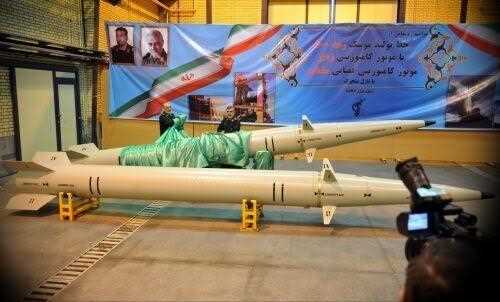Iran has recently unveiled the Raad-500 missile, a new generation of air-to-ground missiles that is designed to enhance the country's military capabilities. The announcement of the new missile comes at a time of heightened tension between Iran and the United States, as well as other countries in the region.
The Raad-500 missile was unveiled by the Islamic Revolutionary Guard Corps (IRGC)
during a military parade in September 2020. According to Iranian officials, the
missile has a range of up to 500 kilometers and is capable of carrying a warhead weighing up to 1,000 kilograms.
The Raad-500 missile is considered to be a significant improvement over Iran's previous missile systems, including the Fateh-110 and the Zolfaghar missiles. It is more accurate and has a longer range, which makes it more effective in targeting enemy installations and military assets.
The Raad-500 missile is also designed to be more maneuverable, which makes it harder to intercept and shoot down. This is a significant advantage in the face of increasingly sophisticated air defense systems that are being deployed by countries in the region.
The development of the Raad-500 missile is part of Iran's broader effort to enhance its military capabilities and strengthen its strategic position in the region. The country has been investing heavily in its missile program in recent years, despite international sanctions and pressure to curb its nuclear and missile activities.
The unveiling of the Raad-500 missile has been met with concern and criticism from the international community, particularly from the United States and its allies in the region. They have expressed concern that Iran's missile program poses a threat to regional stability and security, and have called on the country to halt its missile activities.
Iran has rejected these calls, arguing that its missile program is defensive in nature and is designed to deter aggression and protect the country's sovereignty. The country has also accused the United States and other countries in the region of engaging in a campaign of "maximum pressure" to undermine its security and economic interests.